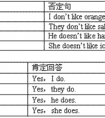用括号里的词的适当形式填空。1. _____ (learn) a foreign language requires our effort.2. Tom is good at _____ (recite) Tang Poem.3. I hope that you can contin-九年级英语
Mary was late again, as had been expected.
11.As 引导的定语从句可以放在主句前面,也可以放在主句后面或主句中间,而由 which引导的定语从句只能放在主句后面。
As we all know, oceans cover more than 70% of the earth.
关系代词可以省略的情况:
1.关系代词which,whom,who,that在定语从句中作宾语时可以省略。
Here is the man (who/that/whom)you're been looking for.
2.当that在从句中作补语时可以省略。
She is all (that) a teacher should be.
3.在there be 结构中出现定语从句,或在定语从句中出现there be 时,用作主语的关系代词也可省略。
This is the best dictionary (that) there is in the library.
4.状语的省略
(1)当先行词是reason,而且定语从句中作原因状语时,关系代词可用why,that,也可以省略。
That is the reason (why) I did it.
(2)当先行词是way,且在定语从句中作方式状语时,关系代词可用in which,that,也可以省略。
I don't know the way that/ which leads to the top of the mountains.
(3)当先行词是time时,关系代词可用when,that 或省略。
I don't know the exact time (when/that) the sports meet will take place.
注意:关系代词作宾语有时也不能省略。
关系代词不能省略情况:
1.在介词+whom与介词+which中,whom,which不能省略。
That is the headmaster with whom my father was talking just now.
2.在非限制性定语从句中,作宾语的关系代词也不能省略。
The elephant is like a spear,as anybody can see.
3.在the same ...as,such...as,as...as,the same...that中,as,that即使作宾语,也不能省略I have bought the same bicycle as you have (bought). (指同类用as)
This is the same book that I read the day before yesterday. (that指同一个)
4.当由and,but,or等连词连接两个或两个以上的定语从句修饰一个先行词时,第一个关系代词可省,但第二,第三个不可省略。
This is the book (which) I read yesterday and which I find very interesting.
关系代词有主格,宾格和属格之分,并有指人与指物之分。that的用法最广,that可指人也可指物。
见表:
|
|
限定性 |
非限定性 |
限定性 |
|
主格 |
who |
which |
that |
|
宾格 |
whom |
that |
that |
|
属格 |
whose |
of which |
of which |
特殊关系代词的用法:
关系词通常是用来引导定语从句的,但as,than和but这三个词却与which, who, that, where, when和why等典型的关系词不同。
三者本身具有常见的字面意义,前面有名词作先行词,但后面的定语从句却不像典型的定语从句。
这些既像连接词又像关系词的词,我们就姑且称它们为准关系词。
一、 as作为准关系代词出现在the same ... as, such ... as, 和as ... as等结构中。
这时, as前面通常要有名词;
as后面的从句意义上不像是通常的定语从句;
as需要在从句中充当一定的句子成分。
1. the same ... as
1) as在从句中作主语
She is the same person as came here last Sunday. 她就是上星期天来这儿的那个人。
2) as在从句中作宾语
This is the same watch as I lost while I was doing the sightseeing in Shanghai three months ago. 这块表跟我三个月前在上海观光时丢失的那块一样。
3) as在从句中作be动词的表语
China is not the same country as it used to be. 中国已今非昔比。
4) as在从句中作行为方式状语
You should learn to do housework in the same way as your mother does it. 你应该学会像你母亲那样做家务活。
2. such ... as
1) as在从句中作主语
Let children read such books as tend to make them better and brighter. 让孩子看那些容易让他们变得更好更聪明的书。
2) as在从句中作宾语
This is not such an interesting book as you just talked about. 这不是你们刚才谈到的那种有趣的书。
3) as在从句中作be动词的表语
Such a bad man as he is will be punished. 像他这样的坏人一定会受到惩罚。
3. as ... as
1) 第二个as在从句中作主语
He has as much money as is required. 他要多少钱就有多少钱。
2) 第二个as在从句中作宾语
I have as many friends as you (do). 我的朋友和你的朋友一样多。
3) 第二个as在从句中作be动词的表语
As is known to all, Taiwan is one of the Chinese provinces。众所周知,台湾是中国的一个省。
二、than作为准关系词 出现在more ... than, less ... than, fewer ... than等结构中。这时, than前面要有名词; than本身有比较意义,而且需要在从句中充当一定的句子成分。
1. than在从句中作主语
Take it easy, I have more money than is needed. 放心,我的钱比所需要的还要多。
2. than在从句中作宾语
I have more/fewer books than you (do). 我的书比你的多/少。
3. than在从句中作be动词的表语
He is a better boy than you (are). 他是一个比你更好的男孩。
三、but作为准关系词 本身含有否定意义,它前面的主句还有另一个否定意义。这时but在意义上相当于“who ... not ...”或“which/that ... not ...”。
1.定语从句中有be动词,并将其改为含but的复合句时, be动词后面不能再有not
There is no one who is not conccrned about his future. (= There is no one but is concerned about his future.) 没有人不关心自己的未来?
2. 定语从句中有can, will, shall, must, may, should, ought to等助动词或情态动词,在将其改为含but的复合句时,这些助动词或情态动词后面不能再有not
There is nothing that she can’t do. (= There is nothing but she can do.) 没有她做不到的事?
3. 定语从句中有助动词do, does, did, 在将其改为含but的复合句时,应去掉do, does, did, 还原其后动词的时态及人称变化
There is no one who doesn’t wish to make great achievements. (= There is no one but wishes to make great achievements.) 谁都希望自己将来能有所成就。
四、which的先行词:关系代词which的先行词可以是一个句子
He said he saw me there, which was a lie。他说在那儿看到了我,纯属谎言。
说明:关系代词that在从句中作宾语或表语时可省略
I've forgotten much of the Latin I once knew。 我过去懂拉丁语,现在大都忘了。
考点名称:形容词的比较级,形容词的最高级
- 形容词的比较级:
当两种物体之间相互比较时,我们要用形容词或副词的比较级;
当相互比较的物体是三个或三个以上时,我们就要用形容词或副词的最高级。 形容词的比较级和最高级的特殊变化规则:
一、少数单音节词前面加 more-, most- 构成比较级和最高级
tired ---- more tired , most tired
fond ----- more fond , most fond
glad ----- more glad , most glad
bored ---- more bored , most bored
pleased---- more pleased , most pleased二、不规则变化
good /well------- better ,best
bad/badly/ill------ worse , worst
many/much-------more , most
little ------ less , least
far ---- farther, farthes / firther , furthest
old ---- older , oldest (GA)
---- older , oldest / elder , eldest (GB)三、下列形容词和副词的比较级和最高级有两种形式
cruel----- crueler, cruelest /more cruel , most cruel
strict---- stricter , strictest /more strict , most strict
often----- oftener , oftenest / more often , most often
friendly------ friendlier , friendliest / more friendly , most friendly
clever----- cleverer, cleverest / more clever , most clever四、下列形容词和副词没有比较级和最高(即表示”最高程度”或”绝对状态”的形容词和副词没有比较级和最高级)
- 最新内容
- 相关内容
- 网友推荐
- 图文推荐
| [家长教育] 孩子为什么会和父母感情疏离? (2019-07-14) |
| [教师分享] 给远方姐姐的一封信 (2018-11-07) |
| [教师分享] 伸缩门 (2018-11-07) |
| [教师分享] 回家乡 (2018-11-07) |
| [教师分享] 是风味也是人间 (2018-11-07) |
| [教师分享] 一句格言的启示 (2018-11-07) |
| [教师分享] 无规矩不成方圆 (2018-11-07) |
| [教师分享] 第十届全国教育名家论坛有感(二) (2018-11-07) |
| [教师分享] 贪玩的小狗 (2018-11-07) |
| [教师分享] 未命名文章 (2018-11-07) |

![Which of the following can you probably see in the meeting room? [ ]A. B. C.D. -七年级英语](http://www.00-edu.com/d/file/ks/4/2/dongmingci/2020-01-08/small97361980a56115e1c9237567439904fe1578422951.jpg)

![—Can the boy finish_____ the book in about a week? —I think he can. [ ]A. read B. reading C. to read D. reads -八年级英语](http://www.00-edu.com/d/file/ks/4/2/dongmingci/2020-01-08/smallfa4d713075e249356362fe7392193a301578421751.png)


